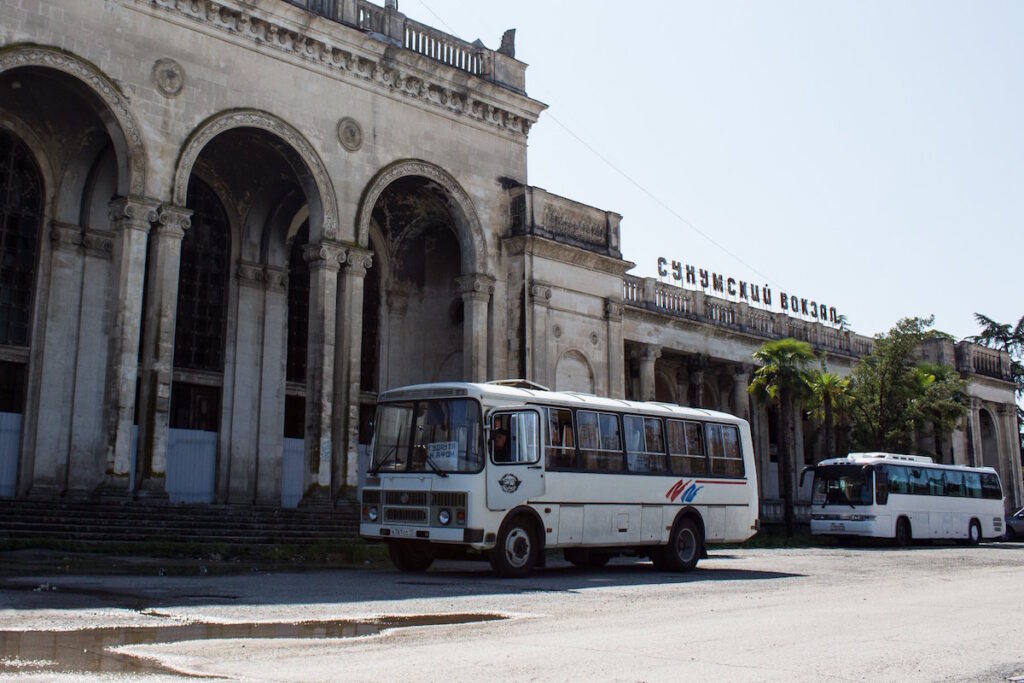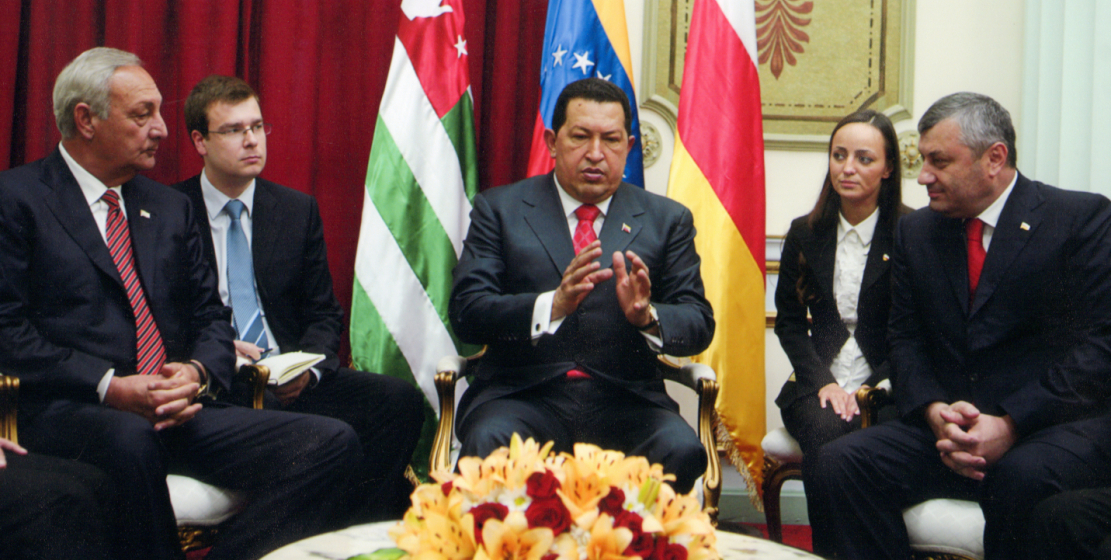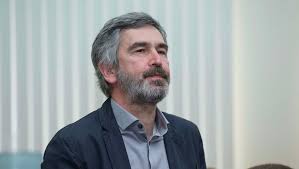Georgia after elections
What will change for Abkhazia with the victory of the Georgian Dream party in Georgia’s parliamentary elections? What prospects might arise in transforming the Georgian-Abkhaz conflict? How realistic is the creation of a major transportation corridor in the South Caucasus involving Abkhazia amidst the changing geopolitical landscape in the region?
These questions, in the context of Georgia’s recently concluded parliamentary elections, were discussed by Inal Khashig, editor of the Chegemskaya Pravda news outlet, and historian and political scientist Astamur Tania, in the latest episode of the program Conversation.
Full text of interview
Inal Khashig: Hello, this is Chegemskaya Pravda. Today we are discussing the elections in Georgia, where the Georgian Dream party has won. Some opposition parties that made it to parliament are boycotting the new session, but the overall picture is more or less clear: Georgian Dream remains in power for another term. Our guest today is regular political expert Astamur Tania. We are particularly interested in Georgia in the context of the Georgian-Abkhaz conflict. Our government has expressed interest in a victory by Georgian Dream several times. How well does the current situation, with Georgian Dream still in power, align with Abkhazia’s long-term interests?
Astamur Tania: We’ve already discussed this issue. It seems that Georgian Dream will be able to form a government since, according to international observers, there were no significant violations that could have drastically influenced the outcome. The state of the opposition and the internal situation in Georgia played a role here. Most Georgian voters chose stability over uncertainty, which is also beneficial for us because it provides predictability.
Now, extensive diplomatic work lies ahead to formulate a realistic agenda for negotiations that meets the interests of both Abkhazia and Georgia. This involves issues of economics, cross-border trade, transportation, connectivity, trust-building measures, and the de-escalation of public discourse. I believe there are opportunities for this now.
During the parliamentary campaign, there was talk that Georgian Dream is a pro-Russian force; Russian commentators have also asserted this. But in my opinion, this is overly simplistic.
Georgian Dream is more of a pragmatic force trying to leverage all possible connections — with Russia, Turkey, and the West — in a complex geopolitical environment. The Georgian constitution still includes a clause about aspiring for integration with the European Union. While this seems more like a slogan, Georgia will strive to maintain close relations with all external players. I believe the current status quo benefits everyone — Russia, the West, Turkey, and Iran — considering other major global flashpoints. The Georgian Dream victory could be a positive factor.
Notice how quickly Armenia, Azerbaijan, and Turkey congratulated Georgia — this indicates they are satisfied with the result. China, as a global player, also reacted accordingly. The speed of the reactions made it clear that the outcome is acceptable to them. Although the election results have yet to be officially finalized and there are demands for a recount, all necessary procedures will be followed. Yet there was no delay in their reactions.
Inal Khashig: The victory raises many questions. Not so much about how they won, but about the content of their campaign, where conflicts were given special attention. For example, the most memorable statement was from Prime Minister Kobakhidze on Georgia’s Independence Day, May 26, when he said that by 2030 Georgia would join the European Union together with the Abkhaz and Ossetians.
Astamur Tania: There were also statements from Ivanishvili.
Inal Khashig: Yes, Ivanishvili also spoke out, but Kobakhidze made a more pointed statement. Ivanishvili emphasized that he was ready to apologize to the Ossetians for the 2008 war and that those responsible for the war from the National Movement would face a kind of Nuremberg trial.
Astamur Tania: But that didn’t resonate.
Inal Khashig: Yes, the idea didn’t gain traction. In August, the theme of restoring Georgia’s territorial integrity began to gain momentum, starting in May. Plans for a confederation and apologies also failed to find support, according to polls.
Astamur Tania: It was a risky move. But the very fact that it was made shows Ivanishvili’s readiness for unconventional actions. We’ll see how this affects the parliamentary elections.
Inal Khashig: After the apology thing didn’t take off, it became clear that Kobakhidze, at the UN General Assembly, spoke of brotherhood with the Abkhaz and Ossetians without providing much detail — just a generalized statement that politicians have been repeating for the past 30 years, from Shevardnadze to Saakashvili.
Astamur Tania: It’s important to distinguish propaganda from actual steps. During the rule of “Georgian Dream,” positive steps were taken to de-escalate the situation. Programs were implemented along the Inguri River, including medical initiatives used by the Abkhaz population. Overall, the region has become more stable, which is a significant step in itself.
Inal Khashig: The main difference between Georgian Dream and Saakashvili’s rule is the absence of a real threat of renewed war. Sabotage activities on the border with Abkhazia were halted, and special units were disbanded. However, the general approach to the conflict hasn’t changed. The medical program you mentioned began during Saakashvili’s tenure, and the 2008 Law on Occupation remains unchanged. Now that Georgian Dream has a majority in parliament again, there may be steps toward resolving the conflict or at least moving beyond the current frozen conflict status.
Astamur Tania: They will now have carte blanche for political decisions. But I still doubt there will be any drastic steps in terms of legal relations because the positions of the parties are vastly different, and the regional situation doesn’t favor such developments. If we step away from the political agenda and focus on practical issues — economy, social connections, and population rights — it could lead to de-escalation and improvement in the situation. An important step could also be the repeal or amendment of the Law on Occupied Territories, which prohibits direct relations with the Abkhaz side. This law hinders the creation of a negotiation platform.
Inal Khashig: The Geneva discussions…
Astamur Tania: If we could transform the Geneva discussions into a negotiation format, it would be a breakthrough and a starting point for further progress. There is potential for this, and it’s important to use informal channels for exchanging views and to secure international support.
Inal Khashig: Georgian Dream always emphasizes that the conflict will be resolved peacefully, not militarily. That’s an interesting point. Peace could be achieved through signing a document mediated by international parties, but this might require amending the Law on Occupation.
Astamur Tania: For that, the parties to the conflict must first be defined.
Inal Khashig: We are not considered a party, after all.
Astamur Tania: We were a party to the conflict. Georgia recognized this status for us, and international organizations acknowledged it de facto and continue to do so. The previous negotiation experience and the decisions made — which now seem forgotten — played a crucial role, primarily in preventing military actions and protecting the population on both sides of the Inguri River. A large package of documents on economic issues and trust-building measures was signed, and we need to revisit and reassess its achievements. This is our own precedent, which we can replicate.
There are issues we cannot solve without each other. In the future, the question of reopening communications in the eastern part of the South Caucasus will inevitably arise. At that point, discussions about transportation routes through the Western Caucasus — namely through Abkhazia, Georgia, Armenia, and Turkey — will become necessary. This is economically beneficial for both sides. Right now, we’re at an impasse: eastern Abkhazia and western Georgia lack strong drivers of development, causing the population to leave these areas. Transit and the economic activity surrounding it would benefit both sides.
Inal Khashig:We’re talking about the South Caucasus as a transit region and the prospects of unlocking major routes. The situation is changing: Russia is actively supporting this, and China, which is building a port in Anaklia, also sees the potential. Armenia used to play a significant role, but its interest has now diminished.
Astamur Tania: As a transit country, Georgia has more opportunities than Armenia.
Inal Khashig: Azerbaijan used to oppose this, but the situation is shifting. How will Georgia’s position in this matter change?
Astamur Tania: The climate surrounding this topic will likely shift. After a long period of stagnation, things are moving. This started with the Baku–Tbilisi–Ceyhan project in the late 1990s, which caused a geopolitical imbalance in the region. If a narrow corridor is opened, for instance through Zangezur, it could again tilt regional interests in favor of players like Turkey. To stabilize the situation and balance the interests of major players, the issue of transit needs to be resolved. Russia is also interested in participating in such projects.
This is our chance to become a full-fledged actor in economic and negotiation frameworks and to take on the role of a player — a chance we cannot afford to miss.
Inal Khashig: What stance should our government take in this situation? Elections have just concluded in Georgia, and ours are approaching.
Astamur Tania: We need to develop a public, realistic model and actively promote it across various platforms, leveraging media opportunities. Contacts can be official or semi-official, such as through interviews and publications. We must create an informational narrative and convey that this model benefits not only us. The arguments should explain why it is advantageous to Georgia, Russia, Turkey, and Western countries, ensuring they do not oppose the projects.
Notions of Caucasus-wide integration have been raised before, though past attempts were unsuccessful. Regional integration could reduce the risk of armed conflict, and the task of our political elite and experts is to develop such a model, discuss it, and present it to the international community to gauge interest.
Inal Khashig: Let’s conclude here. We will return to the topic of the Georgian-Abkhaz conflict when more specifics emerge. A reminder that our guest today was Astamur Tania. Follow Chegemskaya Pravda on Facebook and read us on the newspaper’s website. Goodbye, and thank you!
Georgia After the Elections


